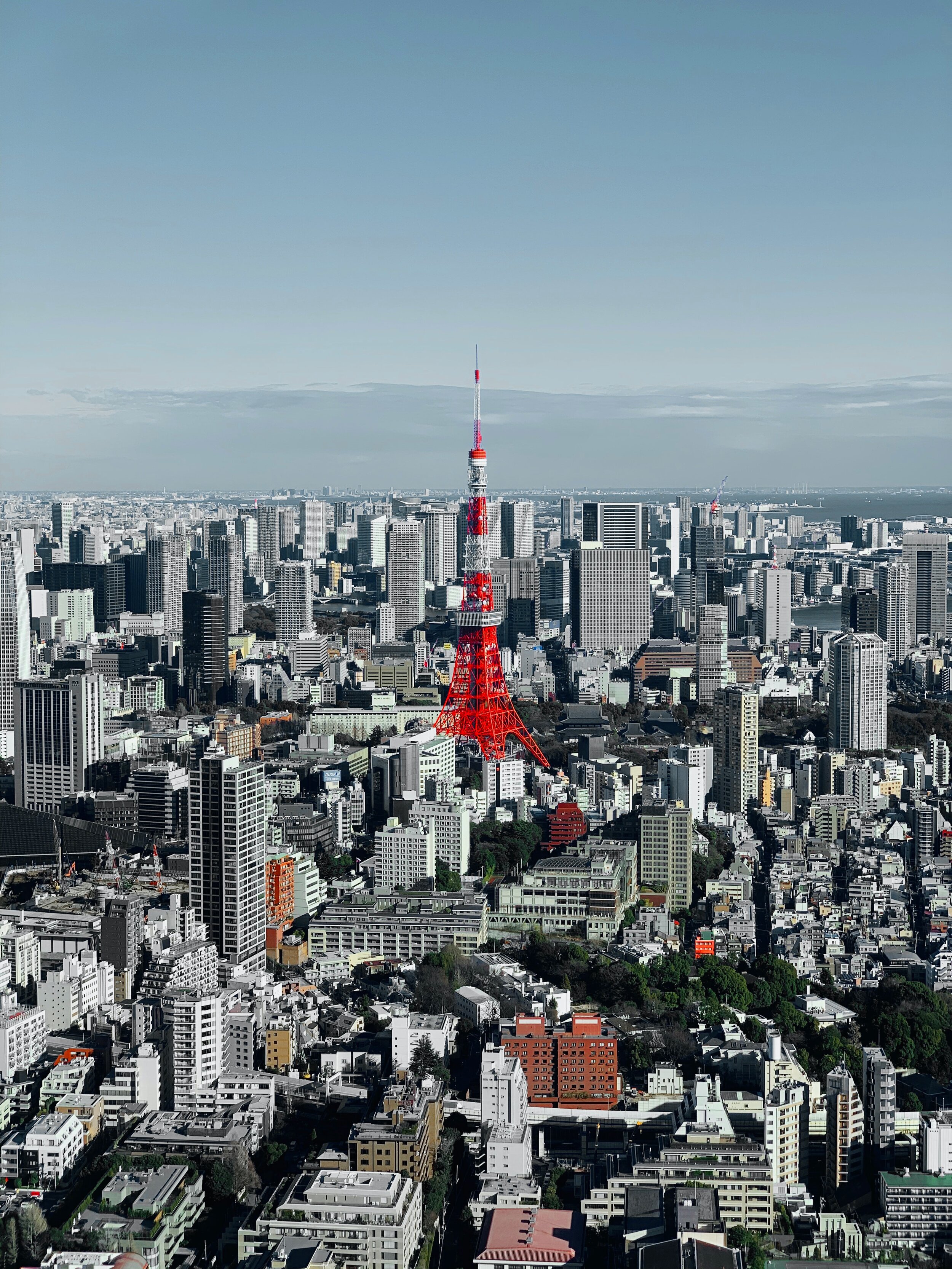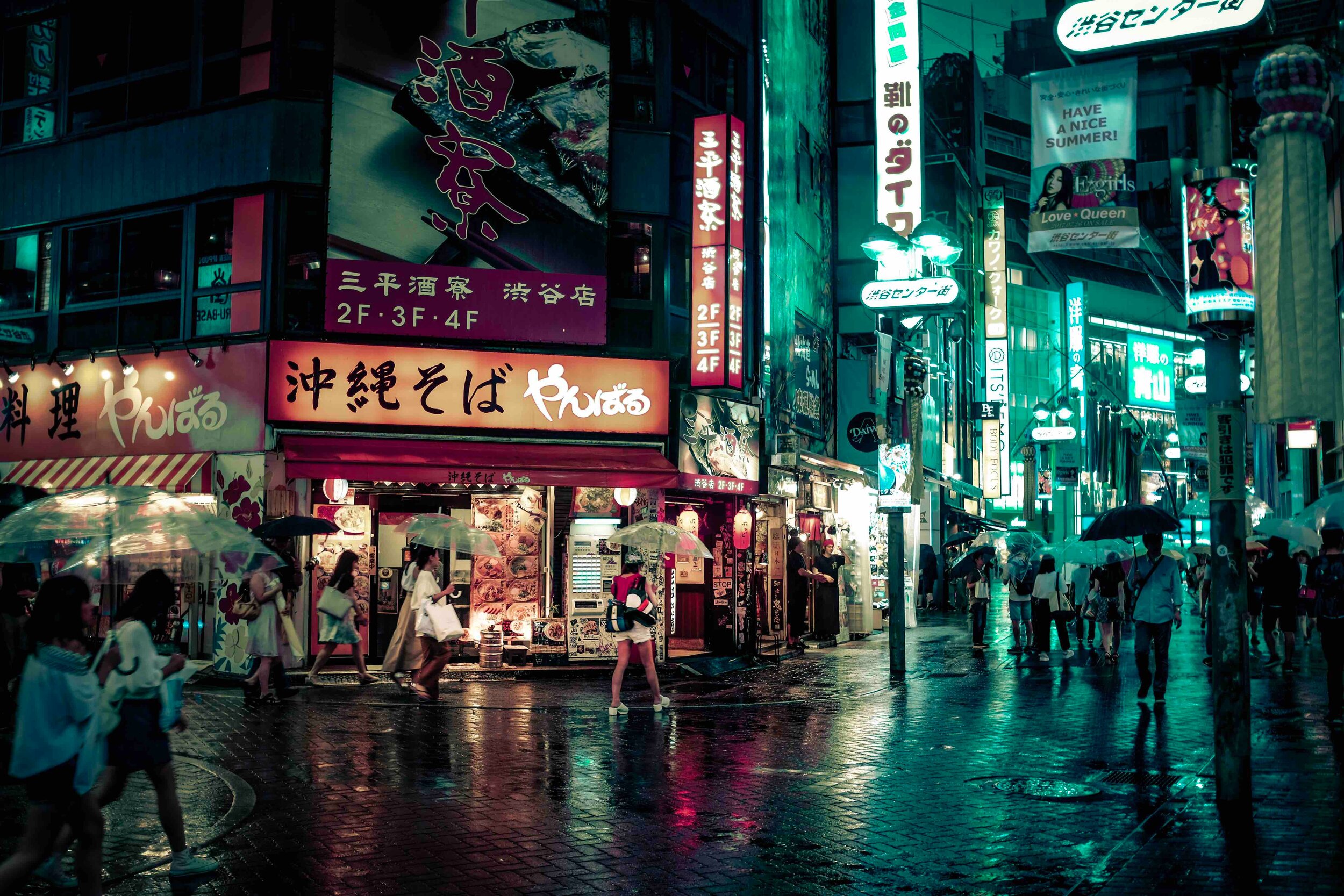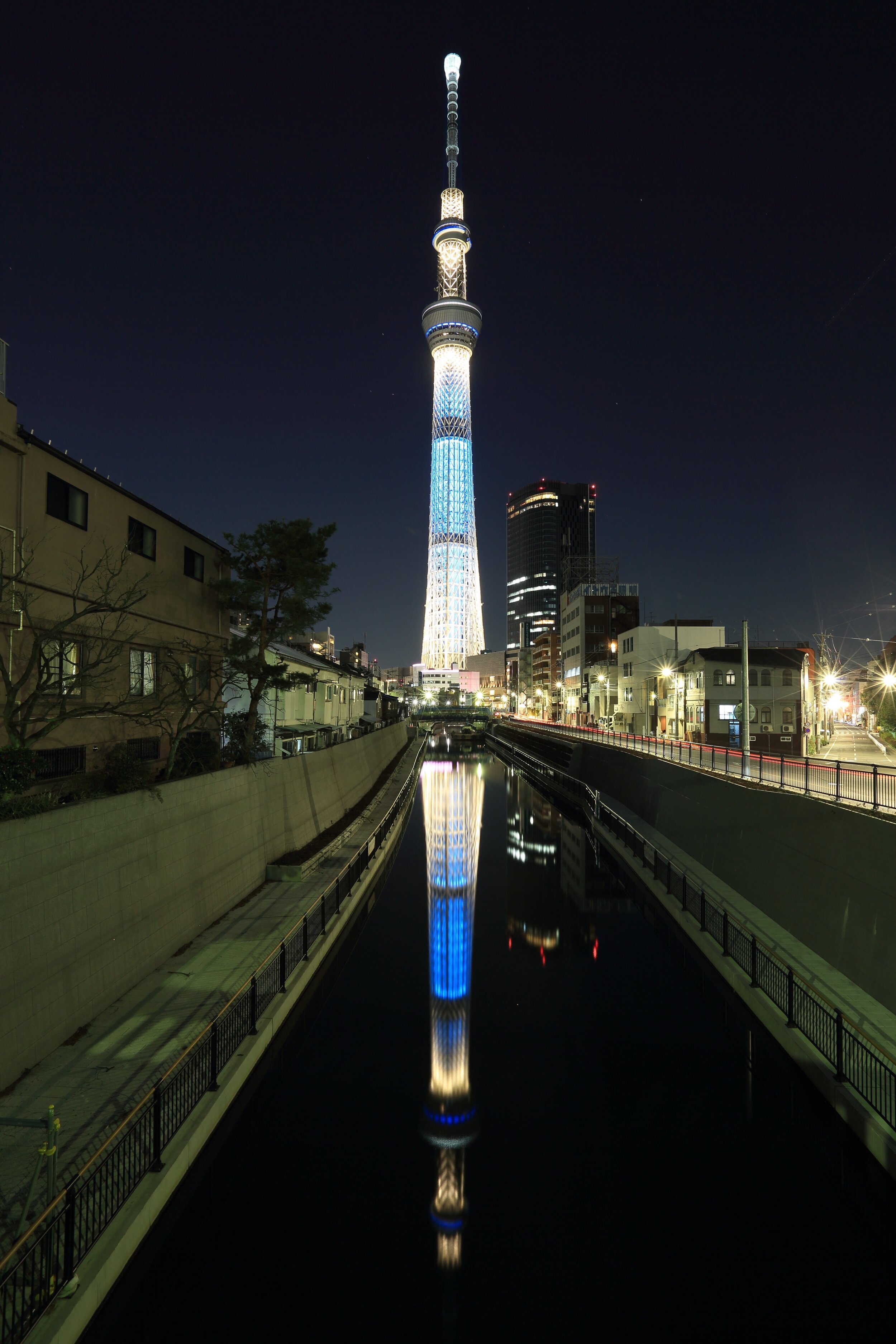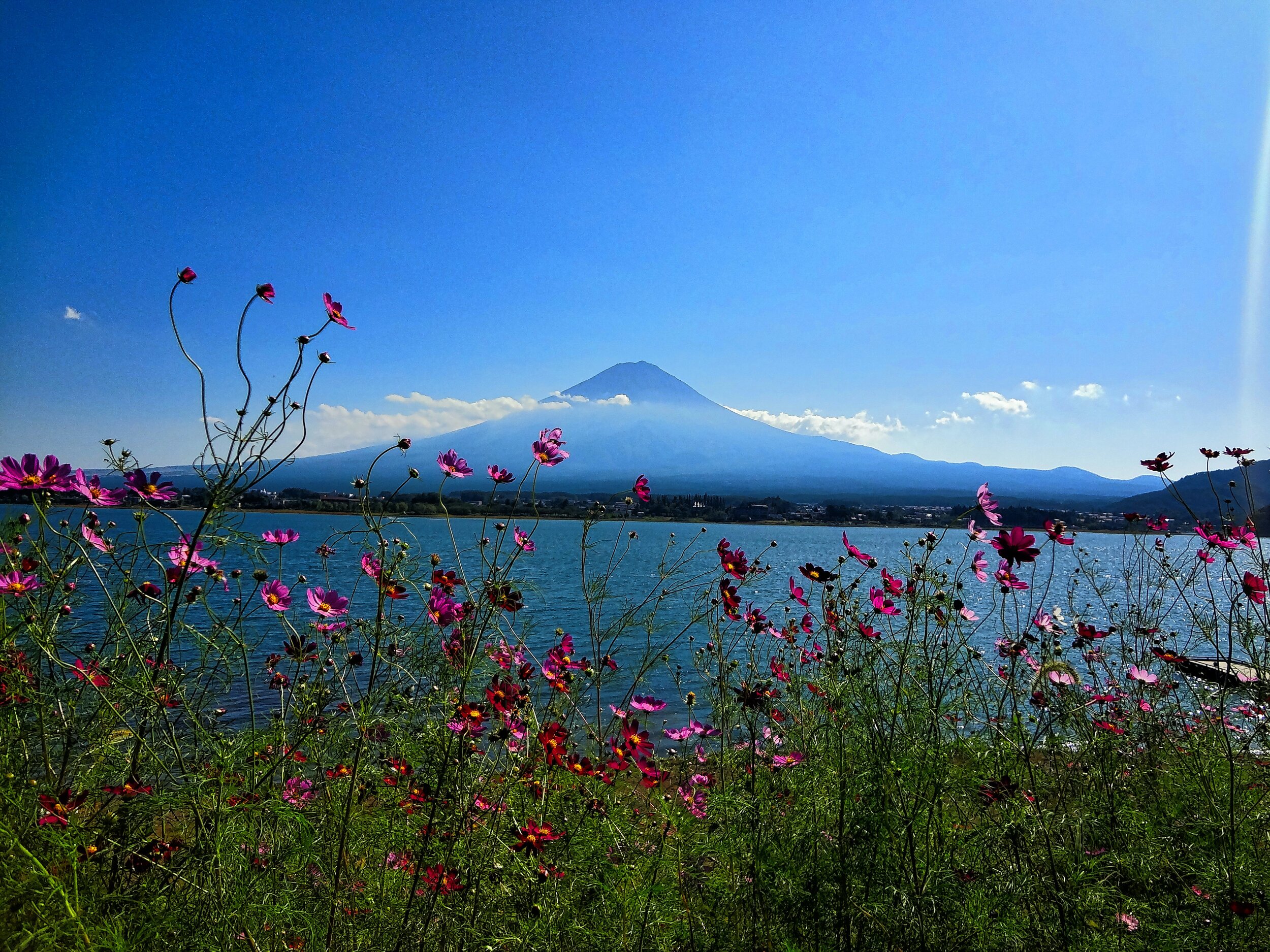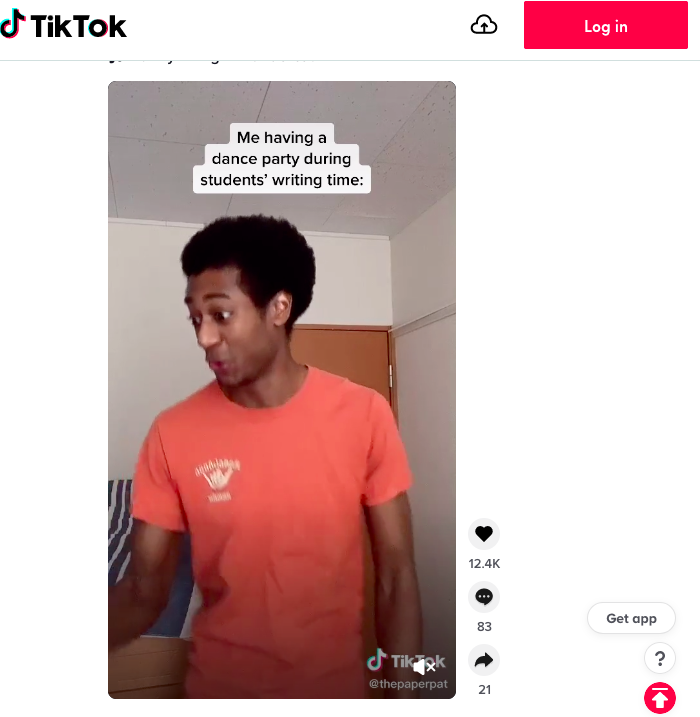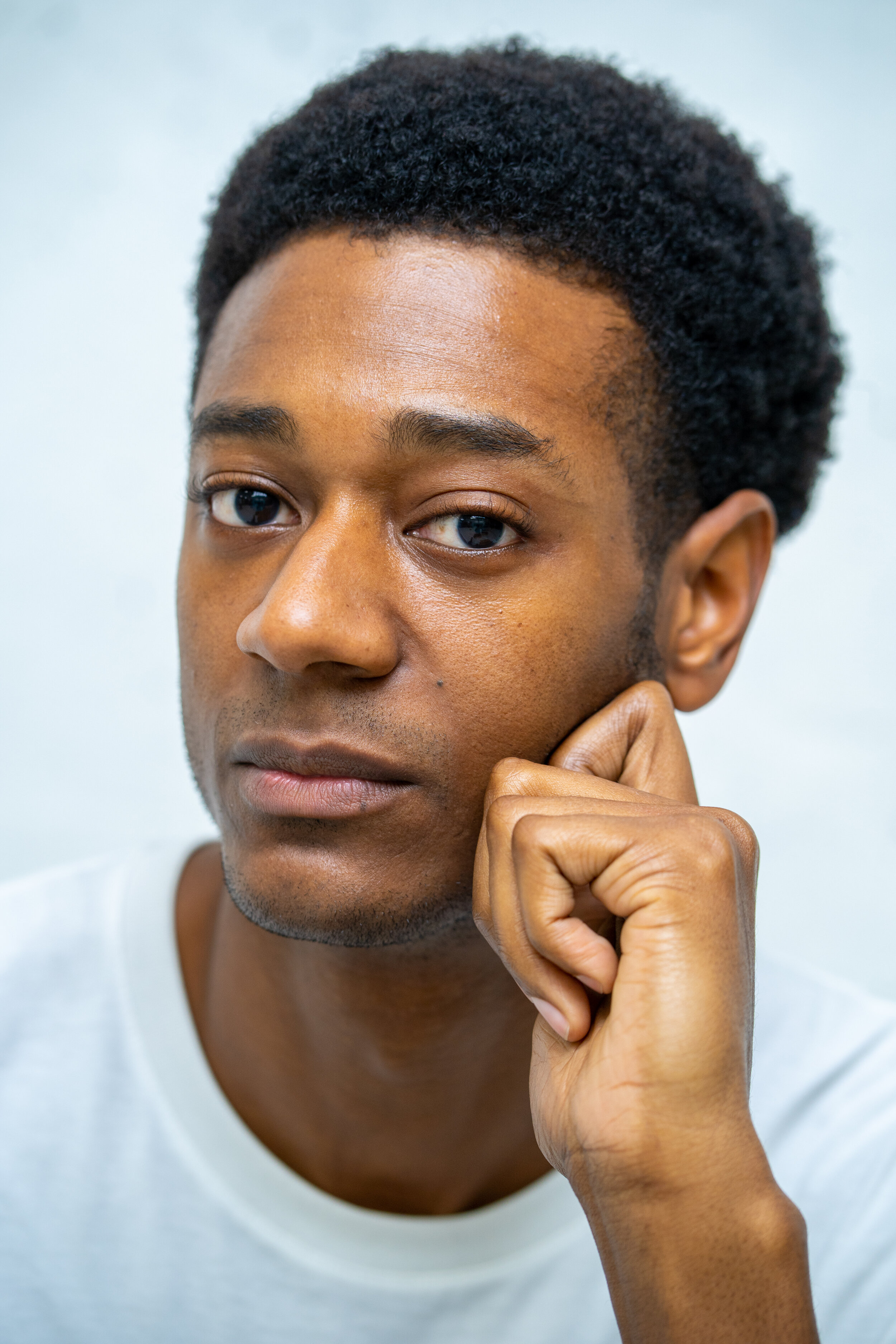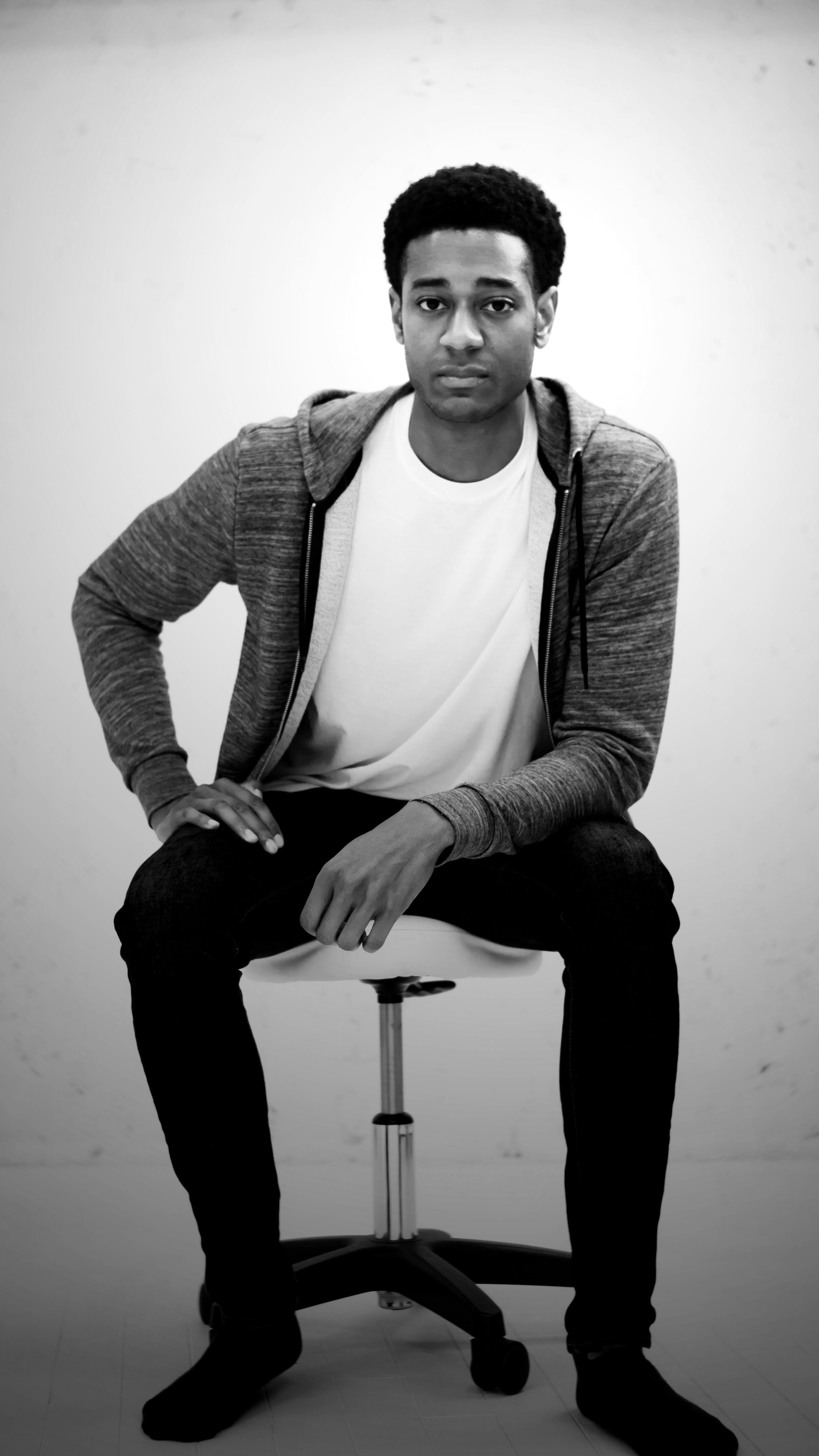Adventure Calls
Episode 15// Patrick Smith: From Teacher To Famous Tiktok-er in Tokyo
LOVE THIS EPISODE?
Help the show! Head over to Apple podcasts to rate and review Adventure Calls.
Welcome to Tokyo, Japan
what's the first thing you think of when I say Tokyo? My first thought is always ‘crosswalk’ … as in the famous Shibuya scramble.
You might know the intersection I'm talking about. It's the one with diagonal crosswalks heaving with people walking every which way across the intersection. Shibuya Crossing is the world's busiest pedestrian intersection.
2500 people cross here every three minutes. I always think of this intersection because it seems like such a symbol of Tokyo itself.
What should be total chaos is totally orderly.
Life in Tokyo, Japan
Tokyo is the world's most populated city, with 38 million people living in the metropolitan area. Now you might expect such a large city to be dangerous and dirty. Yet Tokyo is one of the cleanest and safest cities on Earth.
In fact, crime here is so low that if you lose your wallet, you can expect to get it back the next day. And it probably has the exact amount of cash in it as when you lost it.
You can time travel on a simple walk exploring the city. Locals in futuristic fashion feel like tourists from the year 3000 as you pass them and dip into traditional temples that remain almost entirely unchanged for thousands of years.
As you explore the city streets, you're likely to pass ancient Japanese architecture right next to a brand new gleaming crystal tower.
The skyline in Tokyo is incredibly dense. 143 skyscrapers make Tokyo one of the brightest spots on the globe to see from space. Most tourists visit the 2000 foot tall Skytree tower or the older Tokyo Tower for the views. But those in the know like locals and expats visit the Tokyo Metropolitan Government building or City Hall, which has viewing platforms to take in the city for free.
From here on a clear day, you can see the majestic snow capped Mount Fuji to the west, and Tokyo Bay to the south.
Now, there's nothing wrong with visiting tourist attractions. But expats often avoid traditional sightseeing in favor of fitting in more authentically with locals. But in a country that is 98.5% ethnically Japanese, it can feel really difficult to blend in.
Patrick Smith aka @thepaperpat
Especially if you're my guest today, Patrick Smith, who - as a tall black American man - stands pretty much zero chance of being mistaken for a local. But this hasn't stopped Patrick at all. In fact, he's doubling down on learning Japanese, and he still manages to maintain humility and appreciation for the expat experience.
Patrick has been living abroad now for almost nine years, three in China and six in Japan, working primarily as an English teacher. For about a year now though, Patrick has been leaving a bit of a double life. He posts lighthearted one minute skits about life in the classroom, to followers on Tiktok and Instagram.
During our interview, he had about 700,000 followers on Tiktok.
Today he has almost 1 million.
His online presence is exploding, and rightfully so. His posts are hilarious and totally relatable for anyone who's ever taught English anywhere in the world. This is a story of how a kid from the Midwest not particularly great at or interested in school, grabbed hold of an opportunity to move to China after college, and now works as a passionate teacher in Tokyo and an ambassador for expats everywhere.
Find Patrick Smith
On TikTok
On Instagram
On YouTube
On Twitter
Find Jess Drucker
On Instagram
On Twitter
On Facebook
Expat Life Coaching
How To Move Abroad Book
Adventure Calls Podcast
About Adventure Calls
Adventure Calls is produced, edited and written by me, Jess Drucker, a four-time expat, world-traveler and author of How To Move Abroad And Why It's The Best Thing You'll Do. Essentially a masterclass in book form, the book (available on Amazon in paperback and ebook) distills my 15 years' experience living abroad into 300 pages of practical step-by-step advice and inspiration for anyone looking to follow their own call to adventure.
Images from Unsplash include work by:
Ryoji Iwata
Akira Deng
Alex Knight
Erik Eastman
Jezael Melgoza
Kazuend
Mike Swigunski
Music featured in this episode
This episode features the song Ishikari Lore, by Kevin MacLeod (incompetech.com)
Licensed under Creative Commons: By Attribution 3.0 License
http://creativecommons.org/licenses/by/3.0/
Additional music in this episode from YouTube library, credited to:
Spring Thaw - Asher Fulero
Spring Field - Godmode
Mizuki - Bad Snacks
Full episode transcript
Adventure Calls Episode 15 with Patrick Smith
Jessica Drucker
Patrick, thank you so much for coming on Adventure Calls. I'm very excited to have you. How are you doing?
Patrick Smith
I am doing very well.
Jessica Drucker
So where are you right now? Where are we talking to you from?
Patrick Smith
I live in Tokyo, Japan. I moved here in April of this year. So it's been, I guess, what, eight months or something like that. Enough time to kind of get used to things here but still feeling like, you know, new. There are more people here than anywhere else in the world. There's so many people here. It's mind boggling. I moved just before Tokyo issued a state of emergency actually. So I believe the week after I got here, yeah, they put out an announcement saying, you know, please stay indoors, everybody. So the first like two months I was here I was in my apartment, my tiny little box of an apartment all day. Except for when I needed to get groceries and stuff. teaching online classes here. I'm an English teacher. So it was very interesting.
Jessica Drucker
Yeah, what a weird welcome. Um, okay, let's go all the way back, though. Because I want to talk about your being an English teacher, and all this stuff. But let's go all the way back. So Patrick, where are you from originally? And then where have you also lived? And then how did you end up in Japan? So basically, your life story in a nutshell.
Patrick Smith
I'm from Michigan, in the US, where I lived, you know, all the way up through high school. I went to school in Ohio, like University in Ohio. Then I graduated, I took a year off and just worked a small, you know, part time job, save money. And then I moved to Beijing, China, and taught there for three years, before I then moved to Sendai, Japan, up in the north of Japan. And I taught there for about five years. And then I moved here to Tokyo in April.
Jessica Drucker
So you went to college? Either somebody accrued a lot of debt for that, or you somehow paid for it yourself, or your parents paid for it, but it's expensive. And then you just took a year off and had part time jobs to save money to go to China? Did you have naysayers in your life? How did you know that you wanted to go to China? Where did you get the idea that you could not follow some kind of path laid out for you, like we have here in the States?
Patrick Smith
Yeah. And there definitely was a path that, you know, my parents had in their minds for me, and expressed to me on multiple occasions. My dad really wanted me to go into pharmacy, because he's a pharmacist. And so he's like, this is a very secure job. And you'll be able to make good money and take care of yourself and all this stuff, which is very true. But that wasn't something that I was interested in. I'm not a very smart person when it comes to, you know, all the, like Health and Science and medical stuff. I excel in other areas. So, I wasn't interested in that. I wanted to study, well, I studied communications, I was a communications major in college. And the specific concentration of communications that I chose was electronic media. It was very, very much not a pharmacy. However, I was very not good at that. That whole major. And so I was like, This is not something that I see myself doing or even want to do. For the rest of my life. My school, my university was offering, like month long trips to different countries, like you'd raise money for them yourself. And I was like, Okay, I want to take one to Japan, because that would be super cool. However, there weren't any trips offered to Japan. So I was like, Okay, I guess not, but there was one offered for China. And so I was like, Okay, well, China, Japan, they're basically the same thing, which is definitely not not the case. I was like, do the same thing. So I'll go to China. And so I raised money, I went to China. And I loved it. There was just so much that I had never experienced before as like an American. It was not my first time traveling abroad, but the first time being in a place that long and really like absorbing the culture as much as I could. Yeah, I came back and I was like, Okay, I want to go back to China. I still had Japan in the back of my mind, but I was like I want to go to China. So I graduated. Luckily, like, really ironically, my, my university had this program, because they have a really good relationship with a couple different schools in China, and specifically Beijing, like high schools and a couple universities, where those universities in high schools in China would accept teachers from my university in the states to come and teach. And so they, so I went abroad again, I took a year after graduating and just like, worked and saved up money. And then I went to teach in China. And there were naysayers, like my parents, and a couple you know, people at work were like, why would you want to go to China? Ironically, my sister, my oldest sister, was also living abroad. She was living in Japan, though.
Jessica Drucker
Oh, so you did have a little bit of a path in your mind because there's someone you knew very close to you also lived abroad?
Patrick Smith
Mm hmm. Yes. However, I kind of started to develop an interest in living abroad or at least visiting, you know, Asia, before she moved abroad. It almost felt like she was stealing that from the rebels, like, No, I'm gonna do that. But then, it was nice. Like you said, having someone do that and being able, being able to see what that looks like. And kind of knowing Okay, this might be a challenge, but if she can do it, I can do it.
Jessica Drucker
Right. Which I want to say sorry to interrupt you, but I want to say something that so first of all, I actually should have started this entire conversation off by saying congratulations because you are now verified on tik tok?
Jessica Drucker
Yes, I am. Okay, wait, thank
Patrick Smith
Yes, I am.
Jessica Drucker
That is pretty much Rockstar status for anyone, I guess under the age of 30. And also me. But one of the things I love and I, you know, I, I want to talk about your TikTok fame, um, which is actually true. You're you are really getting really well known I ticked up. But that's what I love about your Tiktok for people, especially, I guess from a younger generation now, is that what you do is you show them what it's like to teach English in Japan. It's not something they have to wonder about. I mean, obviously, you don't have a camera up showing their daily lessons. But what you do show is all of the things that you feel as a teacher teaching in Japan and what I love about that, especially knowing how long you actually have been at this so you taught for three years in China, five years in Sendai and now in Tokyo. It's that it's still all fresh for you... all of these mishaps and ridiculous things that happen and like how ridiculous it is to be the big foreigner in the middle of a classroom. And I just want to talk about a couple of videos. Can I just like, fangirl a little?
Patrick Smith
Yeah, of course.
Jessica Drucker
Okay. I really mean it. But there's this one where you discover that someone in your class is like, fully bilingual. And you're just like, shit, like, how long have you understood every word I've been saying. And if you've taught English abroad, this is the worst moment when you realize that someone understands literally everything you're saying. And then there's one though, where your students realize that you're on social media. And I wonder like, What is that like? So you kind of what's different about you is that you're not just a teacher, like you have a full time job. But you have this other outlet, this creative outlet. So what is it like for you to sort of have these two personalities like you're a teacher but control the classroom or no control of your classroom, whatever. And then you have this TikTok where I tried to go pretty deep in your feed this morning, while I prepared for our interview, and you have a ton of videos. I mean, you have been making real content, and for about, like a year, I guess, but then you switched and you just started covering what it's like to be a teacher. So what is it like to have those two kinds of personalities?
It's, it's so strange. Like I am again, I started this about a little over a year ago, and it was just something that I got into because a friend of mine was like, Hey, you should do TikTok. I just decided to actually try to do it. One day, I made a dance and the things in the beginning did horribly like nothing did well. But I was like, This is fun, though. I kind of like this. It didn't really become like a thing that I really invested time in. Until I had maybe a couple of videos that did really well on TikTok and I was like, oh, like people like that actually went semi viral like people, like started to follow me because of this video. My most viral video was filmed a couple months after I started TikTok like I think it was maybe January or the end, it was me showing a Japanese public that like doing like a like, this is where you take your shoes off. This is where you do, this is where you do that. And that video, it has almost 2 Million Likes now, so many people were so curious about Japan. And I was like, this is something that's really interesting to people like, just me showing a place in Japan, like, got so many views and so many likes and so many followers like I gained, I think 80,000 followers, just from that video alone in like the course of maybe maybe a couple days.
Jessica Drucker
What's it like on the day where you're not really like you're not viral yet? Or whatever you don't have... What do you have now? 700,000 followers on Twitter. So you're not there yet. And all of a sudden you look at your phone and you're like, what the hell? Do you just have like, a million notifications one day and just be like, oh, oh, I think I made it. Is that it? Does that happen to you, does your phone just blow up?
Patrick Smith
Yeah, when whenever a video goes viral, like the notifications tab maxes out at 99. So it'll say 99 +
Jessica Drucker
So that's great to know. I'm not there yet...
Patrick Smith
You'll get there!
Jessica Drucker
Thank you. Yeah, sure. Oh, yeah.
Patrick Smith
It's like, Yeah, I don't know, I guess. At this point, like every, if I wait, like maybe 15 minutes and check TikTok, it will be at 99+, like, every 15 minutes saying after I last checked it because I just have that many followers who are interacting with my content. But um, but back then, yeah, that was a really rare thing. So when that TikTok went viral, I think within maybe seven hours, it had gone up to 45,000 likes, I remember that number 45,000. I was like, I've never had a video do this well before. And from that point on, it was just constantly I would check my I checked the Notifications tab and just see follow like this person called you this person called to this person followed you just like a long list of people who were following. And that was when I felt like I'd kind of made it. And I really hadn't even made it yet. It just took so long that TikTok is so random. It's different. Most random videos can just blow up and the videos that you put tons of time and effort into that you are sure will do well, sometimes flop, you just never really know. So even though I felt like I made it, I tried to recreate that sense of like newness with other videos where I'm showing something in Japan and those videos have like completely flopped sometimes sometimes they do really well too. But sometimes they flop
Jessica Drucker
You really, I mean, maybe you don't feel this way, but like I can imagine myself in your situation you kind of do have two lives, right? Because you still have to go to work and probably not make like a ton of money as a teacher. I mean, I'm sure you're not rolling in it being a teacher. And I don't know if you're earning from TikTok, but like you're getting all these likes, notifications, 80,000 people follow you in a day. I mean, does it feel like a split screen now?
Patrick Smith
Yes, yeah. Going back to that. Yeah, it does now feel very, very different. Because Yeah, I think again, after that viral TikTok, I gained 80,000, I got to, I think I got to 100,000 followers after about a week or two from that video, and I was like, Okay, this is something I'm going to invest time into. And I did start to develop two separate tracks. And my friends, my close friends knew about it, like they were very supportive and like, but it was weird doing that. And like trying to like film the video before work, and then going into work and focusing on the kids and my, my, my day of, you know, classes, then going home at the end of the day, and being tired of being like, I want to film another TikTok, like spending another couple hours filming a TikTok or two. that dichotomy was really weird in the beginning. And it's gotten even more pronounced, since I've moved to Tokyo, with a quarantine and everything in the US, like most of my followers are from the US. And so, when the pandemic got really bad, and you know, I just moved to Tokyo and I was staying indoors because of the state of emergency that was issued in Tokyo. I had so much time to just make all these TikToks. And so a lot of people have messaged me saying like, Oh, your TikToks really helped me to get through the the quarantine like thank you so much for you. But for me at that time, TikToks was like the main thing, like work was secondary, because there was not much work to do. My coworkers at this point have all found out about my talks.
Jessica Drucker
I was gonna say So how long did that secret last?
Patrick Smith
Yeah, it lasted for I want to say like a good couple months. And then I think I was still kind of getting to know my co-workers at lunch one day and one of them asked like, ``What do you usually do in your free time and I was like, well, and I was like, should I say. So I mentioned TikTok. Should I keep that a secret to myself? I kind of feel like I should, but I don't know, I want to get to know these guys and like, be open with them. So I was like, Okay, I have a TikTok account if you know what that is. And they're like, Oh, yeah, we know TikTok. And I was like, I make videos sometimes. And they asked how many followers I had in I said, I, I think at that time, I had like, like, 300,000 or something like that a lot of fun. And they were, they were blown away. And they're like, You're, you're like a TikTok, or TikTok-er? I guess. Yeah. And so they kind of spread that amongst the rest of the staff. But then my boss, actually, this was maybe two months ago, she found out about my TikToks. And she was like, Oh, these videos are so funny. She's Japanese. And she was like, they're so great. Because I was showing her the student ones that I do like the skits in the classroom. And she was like, these are great. Like, maybe we can show these. You know, when people come to the building, just have an iPad, just don't you're like, I don't I don't know. I mean, I wouldn't mind. Like, I don't care who sees my stuff. Hey, but um,
Jessica Drucker
So what I was saying before about your TikToks that I love is that you even though you've been at this for so long, so what is this nine years now? Right? That you've been teaching, and you still like all of these things that still just happen? You're not as a teacher? Like, all these things that are so funny, like you, um, you don't you don't you're not like so numb to them. Like, you're still able to experience them pretty fresh. I think I think the way you react to things is the way a first or a second year teacher would do it. It's great how, like, how you can still bring that all in and like you're not, you're not too cool, you know, because I think after a while, some experts, they get really numb to things. Yeah. So how do you keep it fresh? Like, how do you stay present with these things that are happening while you're teaching English abroad,
Patrick Smith
I always give my students like, you know, a clean slate every day, the kids that mess up or whatever, I'm like, Okay, I'm not gonna hold it again to the next day. Like, everyone's got a clean slate. Whenever I start a new year, I'm like, Okay, this is a brand new group of kids, like, who have maybe never experienced a class with the black teacher before. So I'm gonna treat them the same way I would treat anybody, like how I treated kids, my first year in, in China, even you know, this isn't something that I am going to be like, okay, like, I've done this before these kids are, they're gonna, they're gonna say this about my hair, they're gonna say this about my skin, and like, be jaded and like bitter about it, like, I'm gonna go into it and have fun with it. I think if you don't have fun with it, then teaching English abroad can be one of the most miserable jobs. And, you know, I, I think another thing too, is that I love my kids a lot. I love my students that I teach. I think that's really important when you go into teaching to like, really see them as individuals, and do your best to like, educate them through like, loving them. Like that's, that's something that they're going to really take with them, they're going to remember that.
Jessica Drucker
And especially from you, sorry to interrupt you, but especially from you because you're so different to what they know on a daily basis, especially somewhere like Japan, where it is so homogeneous. So you stand out not only as an American, but like you said, You are black, I'm sure I mean, how many black people do they see outside of our experience with you on a daily basis? So of course, they're going to remember these experiences that you give them. Can you talk a little bit about what it's like to be not just American, and I know you can't separate these two things, but being American but also being a black American abroad in such a home. Oh, gee, it's like 99%.
Patrick Smith
Yeah.
Jessica Drucker
Yeah. So like, so like, what is that experience, like as an American, and you've also been in China, so I'm sure you already had some experience like that. But in Japan, what is it like for you as a black American?
Patrick Smith
Yeah, it's, it's, it's really interesting. I get this question quite often. One of the first videos on my TikTok that started to gain a little bit of, I don't know start to go a little bit viral. I think it was my first video to get up to, I think it was 15,000. Within a week, I was so like, I thought I'd made it back then. It was me ranting about being stared at by Japanese people. And I started it by saying, I love Japan. I love living here. This is a great country and everything. But one thing that I really dislike about living here is that people stare constantly like they will. In China, people would say all the time that China's like 10 times worse. The people are very blunt and very outgoing. And they're kind of like Americans in that way. They're just they'll say what's on their mind and if you see someone staring Get you, they're going to keep staring at you, they're going to notice their friends, like, hey, look at that guy over there, and you see it all happening, it doesn't deter them that you see them. But in Japan, people tend to be more polite. So even though staring is not polite, if you catch them staring, they'll look away. But sometimes there are people who don't do that. And on that particular day, I had just encountered someone who just like staring hardcore, and I was walking by, and I was making eye contact with him. He's just still staring. And it kind of got to me, because you, you experienced that after a while so many times that it just builds up and you have to vent. And usually I can vent like other American coworkers, and we can just talk about the crazy things that we experience. That was the first time I used TikTok as an outlet for that. Yeah, it's stuff like that happens all the time. Kids will say a lot of wild things in class about me. I made a tech talk recently about how kids say that my hair is an explosion sometimes. Which is totally, it's really cute when you think about it, they don't know any different. They see my hair and like what is happening there, they learn the word explosion. They're like, Oh, well, that that's like your hair, your hair is an explosion. You get stared at a lot. I haven't experienced anything like racist things in Japan. That was blatant and big. But there have been small small occurrences that I've made TikToks about. Actually, I was getting my haircut in an area in Tokyo that had a lot of foreigners living there. It's so I was walking down the street and I saw three police officers coming towards me. And it's kind of well known amongst the black community in Japan that police officers will stop us to check our ID and stuff to make sure we're legal. But that hadn't happened in all five years that I lived in Sendai, Japan. But when I was in Tokyo, yeah, those three policemen passed me and I was like thinking they're gonna stop me. But they passed me. But they circled around, came back and asked me for my ID and all this stuff. And they were super polite. Like, they were asking, Can we check your pockets? Can we check your bag? Can we do all this stuff? And I, I suppose I could have said no. So they checked all this stuff. And they were really, there were super polite, bowing, like they looked almost like a shame. And there were tons of other people around like other Japanese people, other foreign people around but I was the only black foreigner that was in that area. And so I asked them, Why did you stop me? They were like, we're not only stopping. We didn't only stop you. We've been stopping people all day. Because Roppongi that's the name of the area. It's a very dangerous city or dangerous area in the city. So we're stopping many many people. They might have been stopping people all day but the fact that they came for me out of the sea of people that were there, including other foreign people who were not black, it was just like, I don't know that that's totally true. I think you stopped me because I didn't say that to them. I was just like, okay and went about my business.
Jessica Drucker
So I really wonder, when you in the US, obviously when as a black person, we all now know, the fear that happens when you get stopped by a police officer. And I think you know, many years ago that was not something that like everyone had at the ready to understand if they weren't black. But so what when you're in Japan and you're being stabbed? Is there at least not a level of fear? Like I could get really hurt here and does part of you feel like this is why I like living abroad because at least I don't fear for my life. I'm just putting all that on you and making a bunch of assumptions. Yeah, but I'm just wondering like, what was your experience as a black person abroad? Do some of your fears subside in those situations? Or would you be more scared in the US in that situation?
Patrick Smith
Yeah, I think when that happened, there was when I first saw the police officers coming towards me I was like immediately like, I panic what's going to happen and it was because at that was at the same time that all the like things had just happened with the murder of George Floyd and all that stuff. So there was that initial fear that set in because of what goes on in the States. But at the same time when I'm out and I see police officers, even though I do kind of, my heart will skip a beat for a second. I'm also like, okay, nothing's gonna happen to me if they stopped me, that would suck but like that's the most that's gonna happen.
Jessica Drucker
I mean, is it strange to have them bow?
Patrick Smith
It was almost like you're Yeah, exactly. I think the first week I moved to Tokyo, I got stopped by two police officers because my bicycle light wasn't on and I remember riding by them and kind of looking and they were just watching me As I was going by and I was like, Oh, no, they're gonna stop me and they did. But because of that the light hadn't turned on. And there was like, no fine for it or anything. I just got the bike like the day before and I didn't know how to work it. So they helped me figure out how to turn the light on. Actually, it was really nice. Right? It's like the complete opposite. Like, it's so nice. But I was panicked because I saw them watching me. I was like, Oh, no, oh no, what's gonna happen?
Jessica Drucker
So I really think we talked a lot now, like a little bit about life in Japan and all that stuff. I would like to do a little bit of just like rapid fire questions about how so I love to give people the idea of like, how you know your why and how you ended up moving abroad and all that stuff because I really, I want people not to feel stuck, they can do it. And like, these are your process. But now like, legitimately so you got the job in China, because your university had an agreement. How did you move to Japan? And were you part of the jet teaching?
Patrick Smith
I was. I was not taught at the school that my older sister was teaching at when we were in China. She was in Japan. She had a really good reputation. She's an amazing teacher. And so when they met me, they were like, okay, your canvases, brother? Well, if you and I helped out with some of their events, like in her kindergarten classroom, I like playing with the kids and stuff. And they saw that. And they're like, that's really cool. If you ever want to come work for us, like, let us know. And so that was kind of my in there. But I don't think I would have still been able to teach there if I hadn't had that connection.
Jessica Drucker
And how did you get a visa to do that? Did they sponsor your visa?
Patrick Smith
They sponsored it, yeah.
Jessica Drucker
Do schools in Japan all sponsor the visa?
Patrick Smith
They, y eah, most of them will most if not all of them will sponsor the visa for you. So if they hire you, like if you apply and they're interested, they'll get the visa process figured out for you, they'll sponsor you.
Jessica Drucker
But see, that's what's interesting, because so I think what's important for people who are listening to know is like teaching is whether you like it or not. Teaching gets you abroad to places where your language is your best and biggest skill. But teaching English or like using your language, being a translator, whatever it is, that's, that's probably what's going to get you a job and a visa, especially in a place like Japan. Mm hmm. And how many Japanese friends do you have? Have you created a community? It's hard, right?
Patrick Smith
It's very difficult. It's very difficult with Japanese people specifically, let alone any, you know, any native people in a foreign country. It's especially hard for Japanese people, because Japanese people tend to be very reserved, and kind of keep to themselves. Even when you're talking with them, they don't really open up and express much about themselves to you. They don't even really introduce themselves. Like they don't tell you their names. Apparently, I've heard this from friends before, but even Japanese people when they meet each other. It's very strange to begin a conversation by introducing yourself with your name, like you kind of talk. And then after you get to a point where you are really comfortable with each other, then you'll say this is my name. You'll talk with them, you'll maybe exchange information like, like line, you know, line, it's like, it's like WhatsApp, or, like WeChat kind of a thing where you can voice chat or text chat or whatever. So you'll exchange line accounts, message each other, and then never hear from them again. I don't think they're not amicable, like they're friendly, but it's just not something that they do much like opening up to people they don't know, especially foreign people.
Jessica Drucker
So do you feel like you kind of live in this like, in correct me if I'm putting this on you, but in like this entire world where like, you're definitely living in Japan, but a lot of your friends and your community have just traditionally been an expat. So you're kind of in this bubble, I guess. Mm hmm.
Patrick Smith
Does it feel like that for you? It felt like that more so when I was living in Sendai my old job and in Japan because that was very it was like, like I said, it was a bigger school with a lot of English teachers. So we were all like together all the time we'd have we'd go out and have dinner together, we'd go to movies together, we do everything together. Here I have a smaller group of coworkers it's just eight of us in the English building, but we don't really hang out that much. We work together and then on the weekends we do whatever. And so that's led to a lot of trying to make friends with Japanese people for me. And I have made a few Japanese friends that I've done multiple things with not just one time like hey, let's hang out sort of a thing gone on trips with some of them, which has been really nice. So I would say in Sendai I did feel that like I'm trapped like this is this I'm in Japan, but I'm not in Japan. But here in Tokyo. It's such a big city and there's so much to explore and see and people to meet. There's so many people here. I feel like I am able to do that more.
Jessica Drucker
Do you think they're also more open in Tokyo being such a big city? Are they more comfortable being friends with foreigners?
Patrick Smith
I think so. Yeah.
Jessica Drucker
But what do you feel like is your next move? I expats often just continue moving to a new place. You have the blueprint, you know how to do it. So are you looking to move somewhere else to stay in Japan? Or would you consider moving home?
Patrick Smith
I do plan eventually to move back to the US. And I think I'm going to do that after Japan. So I am kind of thinking about being in Tokyo for another three years, maybe three ish years. Because I really want to. So the reason I moved to Tokyo from Sendai and the reason I was there, okay, so the reason I was incentiveed for five years was because I love my job, despite the bizarreness of it. And despite the bubble, I really liked it. I loved the kids I taught, I loved the school was an amazing school, like the buildings are really is a very like modern and like just just very, very nice school, that animals on the campus like it was it was an amazing school. But the kids I really liked my students, I connected so well with so many of them. They kept me there for so long. Like that's what that's what made me stay, I didn't want to say goodbye to the kids. However, I was so busy with work, I had no time really to study the language and improve my Japanese. So that's like my goal. I don't need to be fluent, because it's a very difficult language. And I think that would take me like at least 10 or more years to become actually fluent in language. But I do want to learn enough of the language to comfortably have conversations with people. Because at this point, I'm like, almost there, I can kind of talk with people, but I get lost in what they say pretty easily. So I think in three or four more years, I'll be able to get to that point where I can at least talk with people. And then it's weird, because we're not weird, but I feel like I'll be torn at that point. Because I want to continue that and like to improve more. But I want to also go back to the US and be around family.
Jessica Drucker
But what I think people don't realize is actually moving home might be harder than moving to Japan not knowing anything. All the signs are characters and symbols that you've never seen and all these weird noises you don't know. But moving home is actually pretty hard. What do you think about what you miss from home? I did catch something like you certain fast food restaurants you miss. What do you miss from home? And what do you look forward to coming back? And then what do you kind of feel nervous about coming home for?
Patrick Smith
Yes, I do miss the food. Like, I miss the convenience of being able to go to the grocery store. And understand what everything there is and find ingredients. Also that's a thing too, it's hard to find stuff that you can translate with Google translate into something that you understand because translating from Japanese to English and vice versa does not work very well. It doesn't translate well. So it's hard sometimes. I miss I miss like being around I missed the sense of humor of like Americans in like, turning on the TV and saying like, you know, commercials that are what I'm familiar with. I missed that. Japanese TV is interesting. It's very interesting. I'm not gonna say it's weird because it's our culture. But it's very, I'm used to it now. But it's not something that is obviously for my culture. So it's just very different. Very, very different.
Jessica Drucker
And how do you think about your identity as an American? Because right now I find when you're abroad You're so American, because you're You are so so different to everybody around you that like you're definitely so American. But then when you come back? Well, you're your spirit. What do you think? Konichiwa? Like, what Where were you in Japan? Like you're all of a sudden you're so different to people at home? Have you ever experienced stuff like that when you're home on vacation or trips home with your family? And how do you anticipate those sort of things when you move back?
Jessica Drucker
Yeah, I think with my family like we stay in touch pretty often we FaceTime like a group FaceTime every, every couple of weeks. So when I visit home, they're pretty much like normal. But when I see friends like that's when it's like you the whole conversation shifts. When I come in the room. It's like this is the guy who's been living In Japan, so I just get tons of questions constantly. And I'm an introvert. So it's like my worst nightmare, just being bombarded with people in questions, who I mean, they're my friends. So I'm, like, comfortable with them. But it's also like, I'm kind of not comfortable with them, because it's been so long since I've seen them. So it's like a weird thing. And I anticipate when I move back, like permanently to the States, it also with TikTok being what it is. I don't know what that's gonna look like. It states. I made a talk recently about, like, visiting the US on a break and walking through the airport and all this stuff. And it was just like a, like, I was kind of trying to say like, this is what happens sometimes. But people took it to me that I was actually visiting the states. They're like, welcome back. Where are you at? Like, can you have a meet and greet and all this stuff? I'm like, I'm not not in the States. And so I don't know what that's gonna look like being back in the states and having people possibly recognize me in public and seeing me as the guy who teaches English in Japan.
Jessica Drucker
But when you move back, I mean, I just encourage you honestly, to just, like, share, be super authentic about how weird it is to be home, because I think that's something that I know that I could have used, I think the loneliest I've ever been even though living abroad, like you can be really lonely sometimes, because like, you just don't know what's going on sometimes. But actually, the loneliest I've ever felt is being back in the states where you're supposed to feel like home but you're like a square peg in a round hole or whatever they say, like you don't fit in. Yeah. And so like just I can only encourage you to just keep sharing because I think if anybody listening wants to know what it's like to teach English abroad, you have to listen, you have to follow, subscribe to the paper Pat is your I'm going to just do your plugin for you. I was gonna ask you to do the paper pat on TikTok on Instagram. There is no way to explain what it's like to live abroad. Unless you just see these TikToks and you're like, yeah, yeah, that's literally my everyday experience. And for me, you know, I taught English in Costa Rica. I taught English in Guatemala into English in Germany, and even in the UK, which was a little weird because they speak English. And we still have the same experiences like they're the same. It's crazy. I mean, it's different right? Everything's a little bit different. Yeah, but the experience was similar. So if you want to know what it's like to teach English abroad to live abroad, follow the paper pat on TikTok, if you're not on TikTok, please get on TikTok, because that's ridiculous. Can you share with people where they can find you?
Patrick Smith
I just have TikTok @thepaperpat. Instagram @thepaperpat, I'm on Twitter, @thepaperpat I have a YouTube channel, @thepaperpat. Everything's @thepaperpat.
Jessica Drucker
Got it. And I hope to check back in with you at some point when you make another big move. But thank you, I really appreciate you taking the time to be on. It's great meeting the person behind you know, all of these hilarious videos. And yeah, thank you so much.
Patrick Smith
No, yeah, it was great.
Jessica Drucker
Adventure calls are produced, edited and written by me, Jessica Drucker, thank you so much for listening. If you enjoyed this episode, please subscribe. then head over to iTunes or wherever you listen to podcasts and rate and review the show. Every single reading helps so much for me to reach and inspire more people. If you're feeling really inspired and want to start thinking about how you can actually make your move abroad, pick up a copy of my book on Amazon, how to move abroad and why it's the best thing you'll do is essentially a masterclass in book form. Taking my 15 years experience living abroad and distilling that into 300 pages, you'll get step by step tips on how to move abroad and 90 days how to get your paperwork together, how to get a visa advice on how to blend in like a spy, how to learn any language in the world and more, head to amazon.com and pick up your copy of how to move abroad and why it's the best thing you'll do today.
*Transcription via Otter.ai. Please excuse any errors.




